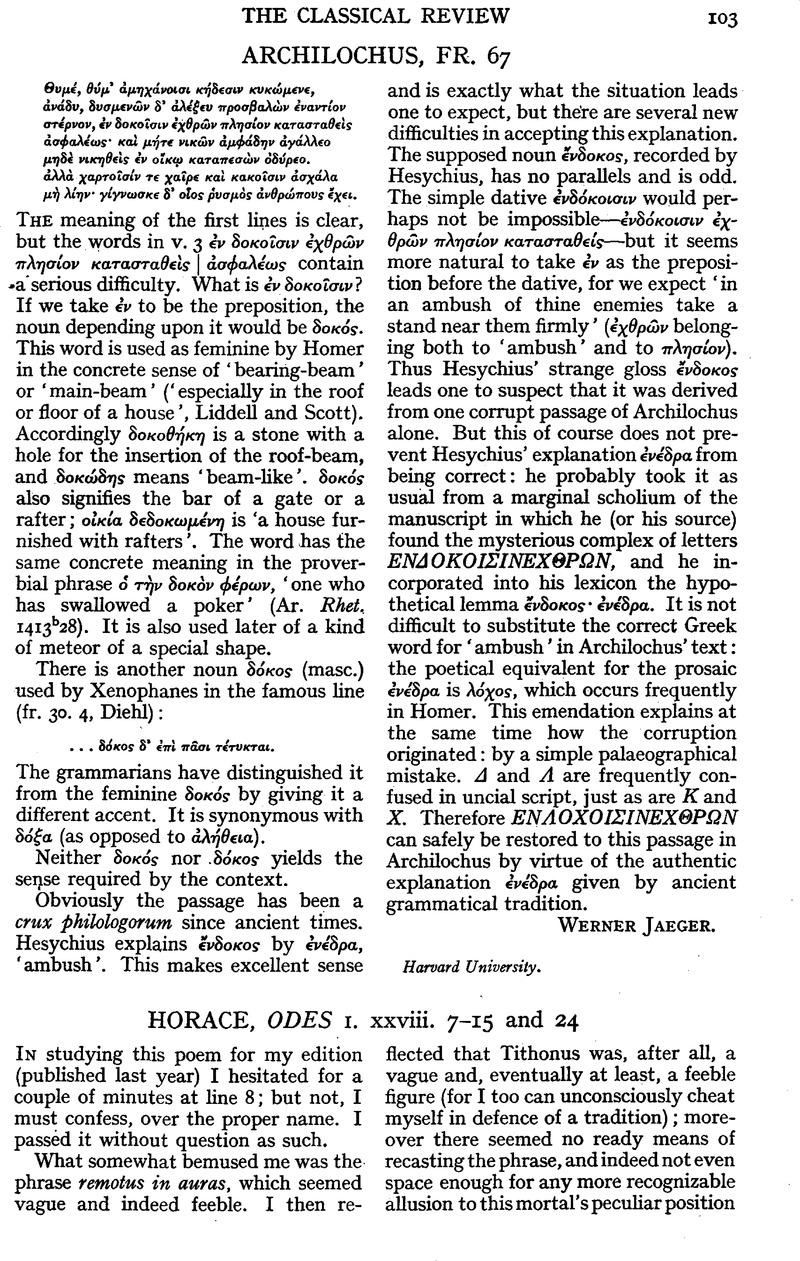No CrossRef data available.
Article contents
Horace, Odes i. xxviii. 7–15 and 24
Published online by Cambridge University Press: 27 October 2009
Abstract

- Type
- Review Article
- Information
- Copyright
- Copyright © The Classical Association 1946
References
104 page note 1 Further evidence consists in IV. vii. 25–6, where the same moral is illustrated by a case which is virtually the opposite.
104 page note 2 The air of earth and the ether of heaven, being continuous, are, it is true, occasionally spoken of as one clime, the heavenly clime; but only from the standpoint of the infernal region, e.g. Virg. Aen. vi. 760–2, Ov. Met. iv. 478; this is of course quite another matter. My various statements can be verified from the references in the Thesaurus.Google Scholar
104 page note 3 Cf. Aen. ii. 699 se tollit ad auras; ‘stately poetic for “up”’(Sidgwick).Google Scholar
104 page note 4 I am complaining of the phrase, not the idea, which was (to this extent) adequate, at least for Virgil; Ed. iv. 63. Had that been his point, H. could at least have turned out, say, quemque Aurora toro sociauit.Google Scholar
105 page note 1 There is another oddity worth mention; it is, despite some commentators, strange to instance even Tithonus as one who had to die, without making any reference whatever to his longa senectus (cf. II. xvi. 30), such as Auroraeque senex male uiuax.
105 page note 2 Pirithous was interned; Orpheus threatened to remain, Ov. Met. x. 38–9.
105 page note 3 Hercules, , who arces attigit igneas (3. iii. 10), would for that reason have been less suitable.Google Scholar


